Marvelous Money: Our new mortgage plan
Two and a half years ago, I shared with you our plan for paying off our mortgage early. In that post, I walked you through our journey up until that point, from simply making extra payments each month to investing the extra payment in a brokerage account. Over the last year there’s been a new plot twist (as I alluded to in this post!), and I’m happy to pull back the curtain today!
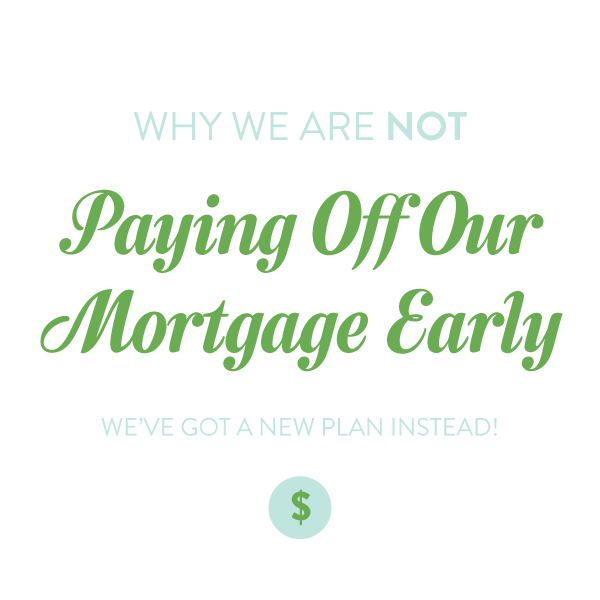
Let’s look at a timeline, shall we?
Spring 2013: We buy our house! We pull together a 13% down payment.
Fall 2014: After paying off our car loans, we use about half of what we had been paying to make an extra mortgage payment each month (directly to the bank), and the other half to build up a fund for our next car purchase.
Fall 2015: Car fund complete, we shift the amount we’d been paying toward our mortgage, too. Instead of paying down our mortgage directly, though, we begin transferring the extra monthly amount into a brokerage account and invest it in a mutual fund.*
The main critique of paying off a mortgage early is that it doesn’t make sense to pay off a low interest rate mortgage when you could be earning higher rates of return by investing. We still planned to pay ours off early, but ALSO wanted to take advantage of compounding interest by investing the extra payment instead of applying it directly to the mortgage. We were comfortable with the extra risk that exposed us to (and the extra willpower it required of us!).
When we saved enough to pay off our mortgage, we would pay it in one lump sum. Hooray, right!?
My husband, though. He’s always thinking. And last year, he came to me with a suggestion: what if, instead of simply saving the amount we needed to pay off our mortgage and then handing it over to the bank in one huge sum, we saved a little longer – maybe two or three years, maybe less, maybe more (depending on the market’s performance). If we could wait just a few years longer, then we would have amassed a large enough amount of money that, carefully invested, the returns themselves would be large enough to cover our monthly mortgage payment, meaning our mortgage would no longer need to be a part of our household budget.
It would be as if we had paid off our mortgage, and yet, we’d also be realizing these other benefits:
1. We would not lose the mortgage interest tax deduction (less of an issue under current tax law).
2. By the miracle of compound interest, in 23 years, when we make the actual final payment, our calculations project we should still have anywhere from 50% to 150% of the money we started with (!!!).
3. That large remaining lump sum could then be used to pay for kiddo college tuition, a rental property, a fabulous vacation, some really extravagant generosity, or – most likely – all of the above.
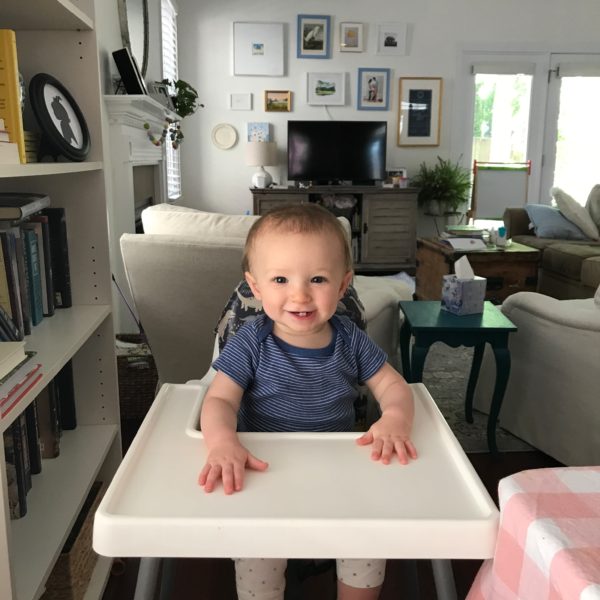
A mostly unrelated but highly adorable photo of Shep and our home
When John first presented this plan, I was not particularly enthused – all I heard was “a few more years of saving” and no “we’re debt freeeeee!!!” scream. (Because technically we wouldn’t be, and it would be weird to scream “we have XXX in our bank account!!!”)
But John’s desire was to make the most of our years of sacrifice, because we both desire to be good stewards of our money. This sounds harsh, but to work so hard to save so much and then sink it directly into a illiquid asset like a home instead of allowing it to continue to grow seemed like a squandering of possibility. If we could steadfastly reach this goal at a relatively young age, it would behoove us to continue that momentum instead of slamming on the brakes by sinking it into our home.
Okay – I was on board. And maybe you’re nodding alongside me right now. This all sounds good, right?!
Here’s the HUGE X factor – with this iteration of the plan, like the last one, we are vastly more exposed to the market than we would be if we were making payments directly to the bank each month. As I talked about in this post, by making those payments directly, it’s like getting a guaranteed 4% (or whatever your mortgage interest rate is) return – nothing thrilling, but respectable for zero risk. Our approach requires accepting that the money we’re socking away could actually lose value – and that’s why we don’t know exactly how long it will take us to reach our goal.
Worth mentioning at this juncture: if you like the idea of trying something like this, I would highly recommend working with a financial advisor (and one who understands what you’re trying to do). Of course, it’s possible to make investment decisions on your own, but I don’t want to give you the impression that it’s just little Miss Creative Director over here knowing all the things and that you should be able to do the same. John IS a financial advisor, and if he weren’t, we would definitely be seeking expertise on decisions of such magnitude.
A final word of caution, the same one I gave in my last mortgage post: I would only consider doing our “next level” system if you have a long track record of steely willpower with your money. It is so tempting to just take a little here or there as you watch that fund grow and other needs come up. If you’re nervous you’d be tempted or don’t want to stomach the risk, just apply the extra payments straight to your mortgage – done and done. Also a fantastic option.
I want to end by saying I realize this post is Marvelous Money 301. It’s a more advanced topic than I usually touch on, and perhaps it feels wildly out of reach for you right now. I get that. I share this not to brag (!!!) or make you feel defeated (hopefully you know that!), but to stretch your imagination of what’s possible, and perhaps plant in you an idea that you’d never heard of before.
My next MM post (series!) is going to be squarely back at the 101 level, and it’s the most-requested topic that I’ve yet to touch on: investing 101! I can think of few topics that are simultaneously as intimidating and as powerful. I’m excited to dig in :)
*Earlier this year, as an experiment, we shifted our money from mutual funds into a managed account. We’ll talk about this more in the forthcoming investment series!
A final reminder: I am not a financial professional, and nothing I say here should be construed as investment advice! I’m just one gal sharing her story :)












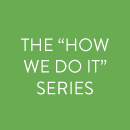
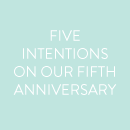





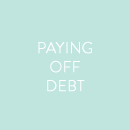
I love this post and you present 301 in a very 101 way, ETA. Well done! We are considering a bevy of similar options right now as well. Will add this to the list of possible routes (although you likely have a few more years on me to let those returns grow!). I love how you and John make financial strategy magic happen together!
Yes, completely unrelated: That face! Those teeth! But related: I’m sure he will appreciate having such smart, determined, and disciplined parents when it opens up greater opportunities for him (and/or you) down the road.
And likewise, smart, generous, and frugal grandparents! :)
Thank you for sharing! I enjoyed the 300-level class, in addition to your “disclaimers” (my favorite being “little Miss Creative Director”), haha! That’s so awesome you guys have the cash flow to make this happen!
We are grateful! The biggest difference-maker has been holding our spending in check over the last few years even as our income has grown!
Love these posts. I’be been doing a lot of reading from the FIRE community and this seems to be the route that many in that group take. We’re only about 2% away from having our mortgage paid off so this type of strategy is a little late for us, lol, but we know we’re going to be buying again in the next few years so we may implement something similar when it comes time (finance, put 20% down to avoid PMI, and invest the rest). I’m with you on the hesitation though – giving up that guaranteed 4%(ish) savings in interest in favor of *probably* getting 7-8+% return via investing is a hard pill for this risk-averse girl to swallow! Thanks for being so candid on topics like these when so many others are not!
So interesting! I am familiar with the FIRE concept in general but haven’t done extended reading, so interesting to hear that this is a route others have taken. (I think John thinks he originated it, ha!) Congratulations to y’all on your upcoming pay off!!
I love this post! My husband and I literally just purchased our first home (as in, closed two days ago) and have been contemplating what we should do regards to saving, investing and paying off our home. We’ve been pretty close followers of Dave Ramsey, but have started to go off his path a bit and do some more digging into other ideas. We live in a really expensive area, so paying off our mortgage early isn’t even an option for us since it’s higher than we’d like to begin with. I think what you’re doing is a great way to maximise the time it takes for money to benefit from compound interest while still working towards living “mortgage free,” even if that means the returns are paying your mortgage. :) As always, thanks for the amazing insight!
Congratulations, Bethany! So exciting!! I still enthusiastically recommend Dave to anyone starting out or anyone who has issues with willpower around money (or perhaps if the couple is not totally on the same page), but I’ve never followed his advice to the letter… lots of interesting ideas out there! :)
em, thank you so much for sharing! Did you worry that you wouldn’t seem as attractive as buyers with only 13% down? Or is that a non-issue? And did you have 20% you just held some back? Trying to decide how to allocate potential down payment $… thank you again! Excellent post!!
In our market, when we bought, that did not seem to be an issue… it was never brought up by our realtor or a buyer! 13% was pretty much the max we were able to pull together for this particular house at that particular time, saving aside our emergency fund, etc.!
Thank you Em! We are realizing it’s wise to put aside $ for an emergency fund – 3 month’s Salary – and not sink it all into the down payment…but are there other home ownership costs we should save for? Like a certain amount for repairs? We’ve always been renters so when something breaks someone else pays for it…
Great question, Emily! One of my favorite financial writers, Megan McArdle, suggests you should budget 1% of your home’s value every year for maintenance and repairs. Hope that helps!
What a fantastic post! My husband and I are first-time home buyers (closing next week!) and have an aggressive mortgage payment plan prepared, but this topic provides wonderful food for thought in the variety of ways to approach building wealth and financial freedom. Thank you for the inspiration!
Congratulations, Kensington!! So glad this post came at a great time for you!
This is SOOO good, and I am late reading it, but man. Love this 301 lesson. You did a great job of breaking this down. I need to digest this a little bit further and will probably have questions!!
You guys are awesome!!
Thank you, Taylor!! I’m here for them!
I love this so much. Thank you for sharing the details! This content inspires me and encourages me to think in different ways.
My husband and I live in a very high-cost of living area. But we love it and our family is here. So we’re choosing intentionally to stay. We’re currently working on saving for a 20% down payment for when we sell our condo and buy a house, hopefully next year.
Very interesting to think that once we reach the 20% goal (socking it away in a high interest rate savings account b/c we need it to be liquid), we can instead start putting that money into an investment fund. Would be curious to know from you and John – how do you calculate how much you need to have in an investment fund in order to have the returns cover your mortgage?
Thanks!
Maureen
Hi Maureen! I’m so glad this post was helpful! John ran something called a Monte Carlo simulation to help us come up with a withdrawal rate we are comfortable with and our lump sum target amount. When I asked him your question, he suggested talking with a financial advisor (obviously :)) and looking into articles online about the 4% withdrawal rate! There are also websites where you can run a Monte Carlo yourself (some more user-friendly than others). Good luck!!
I know this is intensely personal, but I’m curious if the pandemic-induced market volatility has changed how you feel about this strategy. Were you glad these funds were liquid vs. tied up in home equity in case you needed them? Or just was it so hard to watch the market fall in March that you have wished you’d made payments directly on your mortgage? We’re embarking on a similar journey, and I’m really curious on the recent emotional impact of this plan, and if you’d recommend a different strategy after living through such a sharp sell off.
-Personal Finance Super Nerd
Hi Ellie! Great question! In short, it has not. We both have a high tolerance for market volatility and risk and we embarked on this plan knowing what we had set aside could decrease in value – and were okay with that, considering our time horizon and the purpose of these savings. Also, not all of the money is invested in stocks, and most of it is managed in a defensive style which is more protected from volatility. We also have a fully-funded emergency fund, which helped assure us that even if something really unfortunate were to have happened (like, both of us losing our jobs WHILE the market plummeted), we still would have had options. Best of luck to you!!